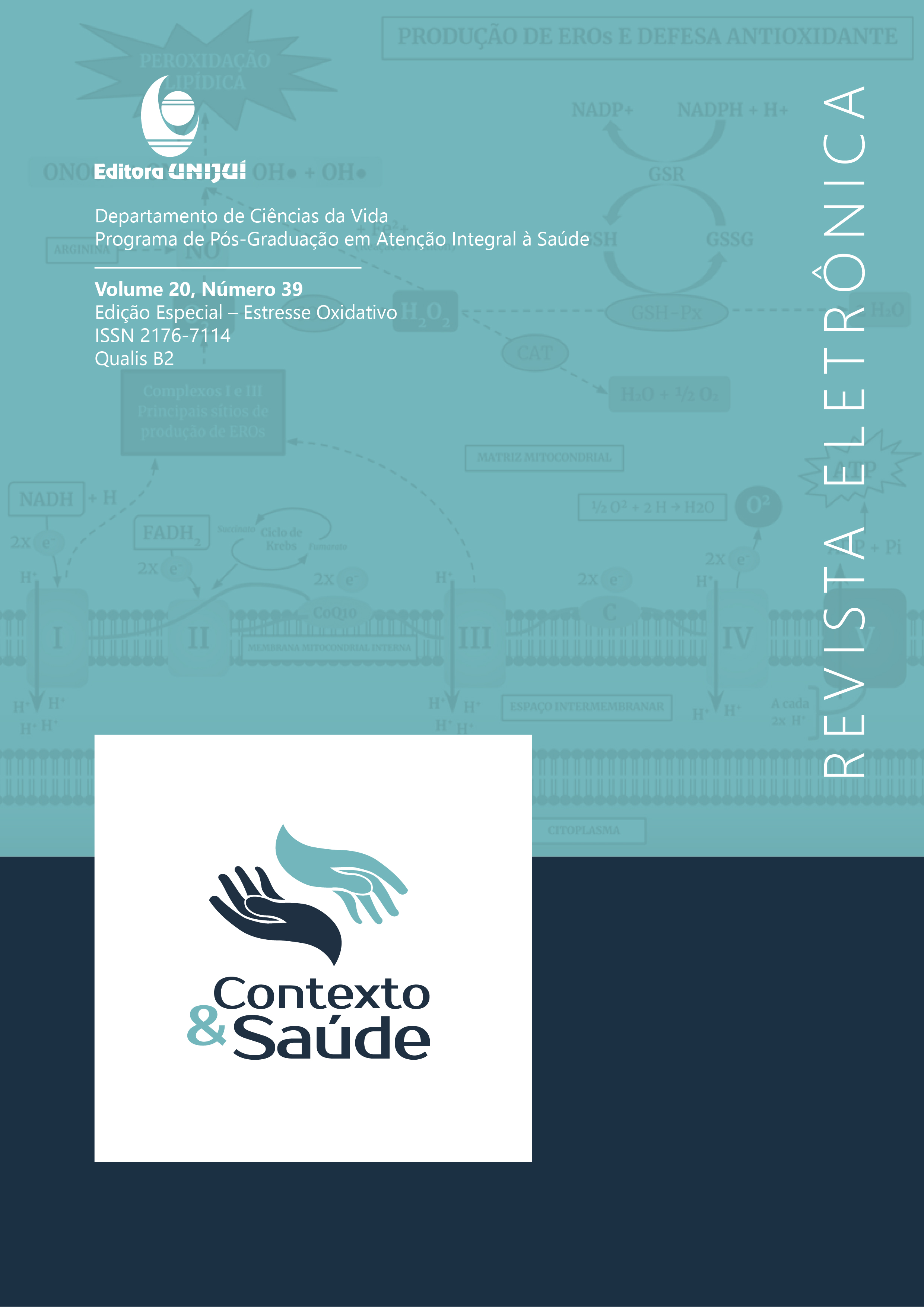BIOQUÍMICA MITOCONDRIAL E ESTRESSE OXIDATIVO NO TRANSTORNO BIPOLAR: NOVOS HORIZONTES
DOI:
https://doi.org/10.21527/2176-7114.2020.39.6-18Palavras-chave:
Radicais Livres, Metabolismo Energético, Mitocôndrias, Transtorno Bipolar, Estresse Oxidativo, Sistema Nervoso CentralResumo
Este artigo é uma revisão do efeito do estresse oxidativo (EO) no Transtorno Bipolar (TB). Esta doença é caracterizada como sendo crônica, grave, com alta morbidade, mortalidade e altas taxas de suicídio. É uma doença progressiva, com episódios cada vez mais curtos e frequentes ao longo do tempo. Modificações ocorrem no cérebro, como alterações na neuroplasticidade, neurotransmissão, falhas na apoptose, ativação no processo imunoinflamatório, com alterações na via de sinalização do cálcio, e mais recentemente, sobre o EO. Esses eventos envolvem uma reorganização patológica no cérebro e, portanto, estão associados a alterações morfológicas, como; redução do volume do córtex pré-frontal, do hipocampo e da amígdala aumentada. Essas alterações estruturais e bioquímicas são conhecidas como neuroprogressão, e apresentam diferenças entre o estágio inicial e final do TB. Neurônios e células da glia têm uma das mais altas demandas de energia, onde estas alterações bioquímicas e anatômicas afetam essas células e principalmente organelas, como as mitocôndrias. A mitocôndria é uma organela especializada que gera trifosfato de adenosina (ATP) sendo considerada a principal fonte de espécies reativas de oxigênio (EROs) e espécies reativas de nitrogênio (ERNs), produzidas pela cadeia de transporte de elétrons (CTE), levando assim ao EO. O papel do EO na fisiopatologia da TB tem sido investigado em vários estudos relatando mudanças nos níveis das enzimas antioxidantes, na peroxidação lipídica e do óxido nítrico (NO). Os mecanismos fisiopatológicos do TB contribuem para uma melhor compreensão da atividade da doença e podem revelar possíveis soluções para o diagnóstico e prognóstico.
Downloads
Publicado
Como Citar
Edição
Seção
Licença
Ao publicar na Revista Contexto & Saúde, os autores concordam com os seguintes termos:
Os trabalhos seguem a licença Creative Commons Atribuição 4.0 Internacional (CC BY 4.0), que permite:
Compartilhar — copiar e redistribuir o material em qualquer meio ou formato;
Adaptar — remixar, transformar e criar a partir do material para qualquer fim, inclusive comercial.
Essas permissões são irrevogáveis, desde que respeitados os seguintes termos:
Atribuição — os autores devem ser devidamente creditados, com link para a licença e indicação de eventuais alterações realizadas.
Sem restrições adicionais — não podem ser aplicadas condições legais ou tecnológicas que restrinjam o uso permitido pela licença.
Avisos:
A licença não se aplica a elementos em domínio público ou cobertos por exceções legais.
A licença não garante todos os direitos necessários para usos específicos (ex.: direitos de imagem, privacidade ou morais).
A revista não se responsabiliza pelas opiniões expressas nos artigos, que são de exclusiva responsabilidade dos autores. O Editor, com o apoio do Comitê Editorial, reserva-se o direito de sugerir ou solicitar modificações quando necessário.
Somente serão aceitos artigos científicos originais, com resultados de pesquisas de interesse que não tenham sido publicados nem submetidos simultaneamente a outro periódico com o mesmo objetivo.
A menção a marcas comerciais ou produtos específicos destina-se apenas à identificação, sem qualquer vínculo promocional por parte dos autores ou da revista.
Contrato de Licença (para artigos publicados a partir de setembro/2025): Os autores mantém os direitos autorais sobre seu artigo, e concedem à Revista Contexto & Saúde o direito de primeira publicação.

